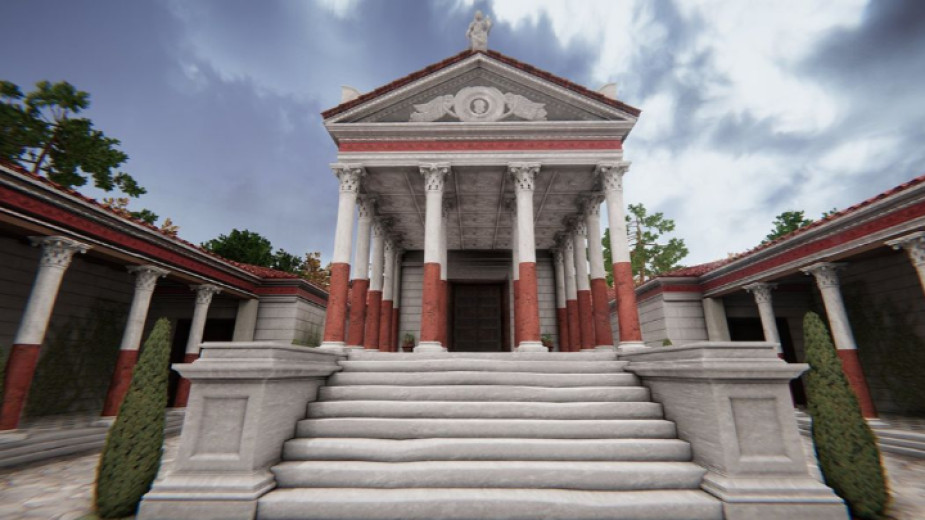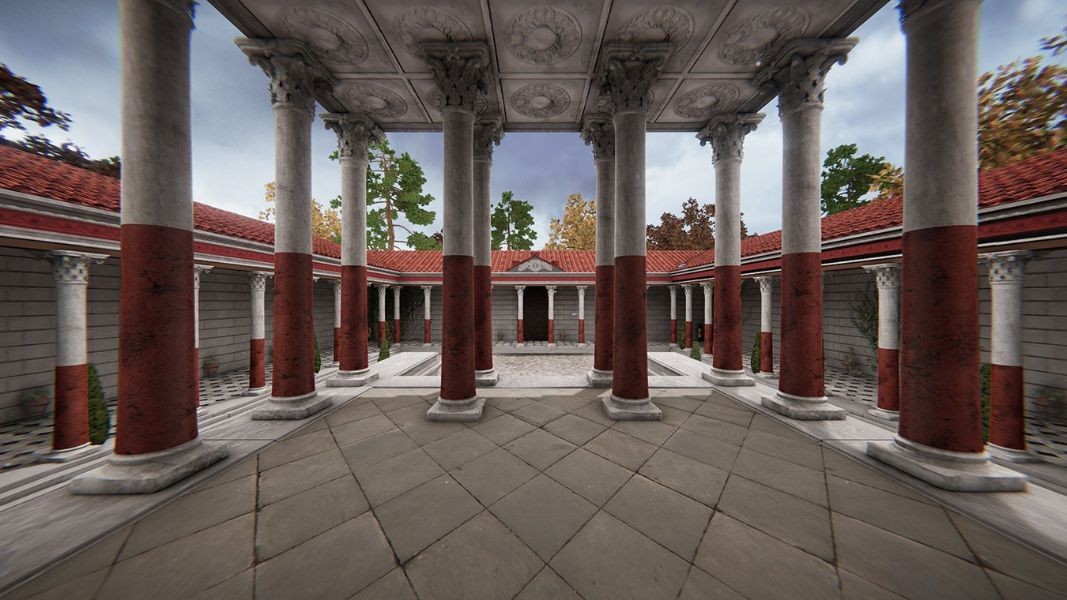 4
4
Visitors to the National History Museum in Sofia can now take a virtual walk in the temple of the ancient Roman goddess of happiness and fortune Fortuna. The building is part of the former Roman colony of Ulpia Oescus near the present-day Bulgarian village of Gigen, near the Danube River. The virtual restoration reveals in the smallest details all the splendor and beauty of the former temple and is now part of the permanent exhibition of Bulgaria’s National History Museum.
The Temple of Fortune (templum Fortunae) was located in the Forum complex of Ulpia Оеscus. It has been fully discovered and studied by archaeologists. The building was constructed in the Corinthian style. According to a Latin inscription, the temple was dedicated to the Roman emperor Commodus (180-192) and was built with the funds of the then "association of craftsmen" (collegium fabrorum) in 190.

The colonnade of the courtyard was decorated with a frieze - architraves with embossed bull heads and laurel garlands. The temple consisted of an entrance hall and a cult room. Its southern façade had four Corinthian columns. On the triangular pediment there were two Victorias depicted, holding a laurel wreath. Inside, in the wreath, was a relief image - probably the head of Medusa, to protect against evil. The temple complex was destroyed by the Goths or by an earthquake in 376-378.

You can find more interesting details related to the tumultuous story of the ancient Roman city of Ulpia Oescus here:
Compiled by Veneta Nikolova
Photos: National History Museum
English version Rositsa Petkova
On 19 October 2025, the day on which Orthodox Bulgarians commemorate St Ivan Rilski the Miracle-Worker, the newly renovated St Ivan Rilski Church in Chicago will officially reopen its doors. Named after Bulgaria’s heavenly patron , the church will host..
Archaeologist Nikolay Ovcharov on Thursday announced the discovery of a large circular temple at Perperikon, the early-historic rock complex in the Eastern Rhodopes, BTA reported. Dating to the 3rd–4th centuries AD , the structure is believed to..
This summer, archaeologists once again breathed life into the legends woven into the rocks of Kaliakra . Among the ruins of the once majestic fortress above the Black Sea, over 400 artefacts were discovered, shedding new light on..

+359 2 9336 661
